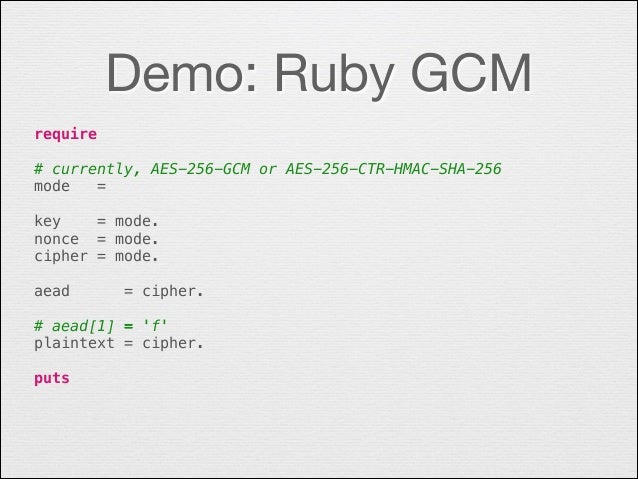Generate Random Aes 256 Key Java
Key generators are constructed using one of the getInstance class methods of this class.
KeyGenerator objects are reusable, i.e., after a key has been generated, the same KeyGenerator object can be re-used to generate further keys.
- The command keytool -genkey -alias patient -storepass test -keypass test by default generates a DSA key pair and not an AES key. I don't think you can create an AES key witth 'keytool' (I could be wrong). You can supply the bytes containing the AES key or you can get Java to generate a random AES key for you.
- To generate secrete key we can use Java KeyGenerator class which provides the functionality of a secret (symmetric) key generator. Key generators are constructed using one of the getInstance class methods of this class. GetInstance method of KeyGenerator takes parameter name of algorithm and Returns a KeyGenerator object that generates secret keys for the specified.
- Jul 28, 2018 Questions: I had Java Code which generate key AES256 Bit key, have to implement same Code in.Net.
Vista basic product key generator for microsoft office 2016. There are two ways to generate a key: in an algorithm-independent manner, and in an algorithm-specific manner. The only difference between the two is the initialization of the object:
- Algorithm-Independent Initialization
All key generators share the concepts of a keysize and a source of randomness. There is an
initmethod in this KeyGenerator class that takes these two universally shared types of arguments. There is also one that takes just akeysizeargument, and uses the SecureRandom implementation of the highest-priority installed provider as the source of randomness (or a system-provided source of randomness if none of the installed providers supply a SecureRandom implementation), and one that takes just a source of randomness.Since no other parameters are specified when you call the above algorithm-independent
initmethods, it is up to the provider what to do about the algorithm-specific parameters (if any) to be associated with each of the keys. - Algorithm-Specific Initialization
For situations where a set of algorithm-specific parameters already exists, there are two
initmethods that have anAlgorithmParameterSpecargument. One also has aSecureRandomargument, while the other uses the SecureRandom implementation of the highest-priority installed provider as the source of randomness (or a system-provided source of randomness if none of the installed providers supply a SecureRandom implementation).
The SecretKeySpecification is an object containing a reference to the bytes forming the AES key. The AES key is nothing more than a specific sized byte array (256-bit for AES 256 or 32 bytes) that is generated by the keytool(see above).
In case the client does not explicitly initialize the KeyGenerator (via a call to an init method), each provider must supply (and document) a default initialization.
Every implementation of the Java platform is required to support the following standard KeyGenerator algorithms with the keysizes in parentheses:
- AES (128)
- DES (56)
- DESede (168)
- HmacSHA1
- HmacSHA256

I had Java Code which generate key AES256 Bit key, have to implement same Code in .Net
Here is my sample java
Below is my .net Code
Above code generate key is “MnRpUVZmT3p5bG94R1RHYklMYU5Qdz09LDRZTUVQVlZWMHd0T2k3VGxEci9pejlBT3QvY215TFVNcFZ5ei93YnFuZk09”
I am getting key AES256 key from above code,which i had to convert it into bytes and pass at “skey” parameter in below function,but during execution of gcmb.Init(cipherOperation, ObjAeadParameters) i am getting error “invalid parameters passed to GCM”.
GCM Block Cipher Encryption Youda marina license key generator.
Generate Aes 256 Key Java
Tags: .net